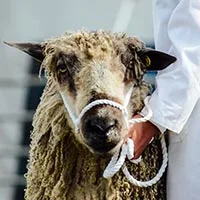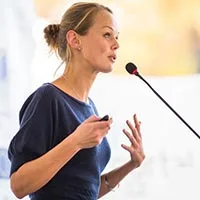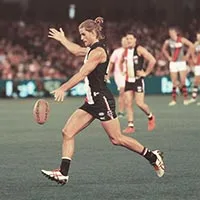
Internal Working Models in Adult Attachment (15.05.24)
- Wed 15th May, 6:30 PM - 8:30 PM
- online event
- Book Ticket
- View Website
John Bowlby (1969/1982) sought to integrate the cognitive sciences with psychoanalysis and ethology (the study of animal behaviour). In doing so, he also proposed the Internal Working Models (IWMs) concept to account for ‘predisposed developing predictive learning mechanisms’ that guide attachment behaviour across the lifespan (Bolwby, 1980). IWMs were neither pure instincts—i.e., fixed action patterns—nor simple behaviourist learned responses to care. Rather, Bowlby anticipated the changes in developmental sciences that have embraced more complex notions interactivity. IWMs are simultaneously continuous and changeable. But how exactly? Disappointingly, these notions of the IWM have hardly advanced in any systematic manner over the 50 plus years since the first 1969 Volume One of Attachment and Loss.
Despite the lack of overt theoretical progress, a broad suite of multilevel biopsychosocial findings—genetic, epigenetic, brain/central neural system perspectives, peripheral autonomic and somatic systems, cognitive priming—represents a near tidal wave of non-dualistic findings for further consideration. Indeed, Bosmans and colleagues (2020) have suggested that perhaps like the cognitive sciences from the 1960s who commenced looking inside the mind, Attachment Theory might be ready for an ‘unravelling of the black box of attachment development’. This webinar will provide a survey of developments of Bowlby’s original conceptions with an aim to look at how IWMs might be considered in change in therapy with our clients. In addition to the above-mentioned biopsychosocial research, consideration will be given to IWMs as both our unique individual specific representations and the more general emotional/relational capacities that guide our daily living. Included here will be Lau-Zhu and colleagues 2023 recent meta-analysis of Autobiographical Episodic Memory (AEM) attachment and emotion regulation/expression. Brief mention will be made of possible relations between IWMs and Maladaptive Schemas. Case examples and group input will guide the practical consideration of what may change and how in an attachment informed therapy.
Learning Outcomes:
- Gain an updated current perspective on the key change mechanisms of attachment
- Differentiate/compare attachment from other concepts in psychodynamic theory
- Gain a more realistic perspective on goals for change when conducting attachment informed therapy
Live Webinar. Includes access to video recording for 30 days, excluding clinical video observation content.
Date: Wednesday, 15th of May, 2024
Time: 6.30 p.m. to 8.30 p.m. (Sydney/Melbourne/Canberra Time)
Cost: 59.99 Early bird special!!! (Expires 14.01.24). Discount automatically applied at checkout.
Certificate of completion:
• Provided on completion of this workshop.
About Dr Kevin Keith, PhD
Kevin is a psychotherapist, supervisor and an academic. He has been a therapist for nearly 15 years. He completed his PhD in 2017 at the University of Sydney focusing on theoretical questions around the status of post-infancy preschool developments within Attachment Theory. His academic interests also include emotions research, philosophy of science and the empirical status of longer-term psychotherapy. He also provides professional development to colleagues across several professions. He has been working in the field of mental health since 2005, including 10 years work in the community health sector. Kevin has been teaching counselling In Sydney since 2007.
About eiseEducation
eiseEducation is a thought-leading education consultancy that delivers exceptional training to higher education, corporate and community sectors. We work from the insightful understanding of each client’s unique situation to deliver bespoke courses and exceptional results. Find out more at eiseeducation.com
Cost: $74.99
Category Educational






















